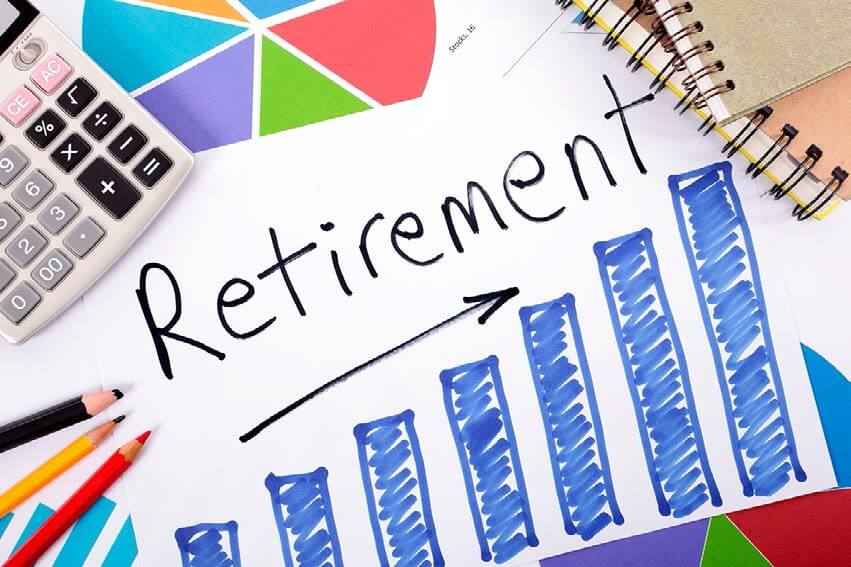
Can you afford to retire and still continue to maintain your comfortable lifestyle, meet your commitments?
Have you considered the effects of inflation on your savings?
What if something were to happen to you suddenly?
Could your family cope financially without you?
When we are young, healthy, and busy climbing the corporate ladder, retirement is the last thing on our minds. The world is ours to conquer, and retiring from it’s challenges and excitement is a distant prospect, confined to the older generation - our parents, the ‘uncle’ and ‘aunty’ down the road, and the senior citizens we help through our company’s CSR programme. But time flies, and we will soon be the older generation, fast- tracking towards the dreaded ‘R word’ and it’s associated uncertainties.
Are you prepared?
Can you afford to retire and still continue to maintain your comfortable lifestyle, meet your commitments?
Have you considered the effects of inflation on your savings?
What if something were to happen to you suddenly?
Could your family cope financially without you?
Although it is a key life event that the entire workforce will experience one day, many of us don’t give retirement much thought and so are ill prepared for it. We know we want to retire comfortably to enjoy the fruit of our labours of several decades, but the years of planning and persistence that go into building a successful retirement plan make the process rather daunting, so we tend to shelve it.
It doesn’t have to be that way if you start planning right now.
Living in retirement
As recently as up to the mid- 20th century, people didn’t retire. They used to work until they dropped, regardless of age. Life spans were shorter then, and the few survivors into old age either had enough cash to tide them over stashed under their floorboards, or moved in with the kids. But in the modern world, life expectancy has increased as access to medical care and a relatively safe day-to-day life has made it possible for people to develop crow’s feet and grey hair. The social fabric has also changed, children are, mainly, not required to take care of their parents in old age. So, while the share of older people in the population has increased substantially, they now have to either take care of themselves, or the state has to step in to look after them.
Today, people expect to spend more than a quarter of their life in retirement, and demographists say the share of those over 60 years, who now comprise 12.5% of the Sri Lankan population, will rise to 24% by 2040. In 2070, the over 60s will be a third of the population. A proper pension plan or monthly income following retirement is essential to ensure financial security for both the people and the country.
Pensions, EPF, ETF not enough
Despite most government jobs being pensionable, state pensions are barely adequate since government salaries are low in comparison to their private sector counterparts. Only 30% of the population over 60 years get a pension that helps them to make ends meet. Nearly 55% of the Sri Lankan labour force doesn’t have an adequate pension, and 85% of the population between the ages of 20 and 59 are not covered by any pension scheme. The savings of workers in Sri Lanka are invested in government-managed funds - the Employees Provident Fund (EPF) and the Employees Trust Fund (ETF), which are the country’s largest social security scheme and to which most corporates also contribute. But high rates of inflation are making these funds insufficient to provide a comfortable lifestyle post-retirement, unless invested wisely.
As recently as up to the mid- 20th century, people didn’t retire. They used to work until they dropped, regardless of age.
Whatever your choice of product, the sooner you start on your retirement plan, that is, the younger you are, the less your monthly contribution will be.

A variety of retirement plans
Banks, finance companies and insurance companies have stepped in to meet this shortfall in adequate retirement instruments, and now offer a host of attractive and flexible retirement plans that are easy on the purse, depending on the age at which one invests in them. All you need do is to decide when to retire, figure out how much you will need monthly once you do, and for how long you will need it. Mutual and insurance funds manager have demonstrated their ability to deliver good returns, even during challenging market conditions, so you will do well to consider investing in a retirement plan offered by a financial services institution. Visit the various financial institutions, explore these plans, but be careful about ‘fly-by-night’ plans that offer unbelievably high rates of interest – if they sound too good to be true, they probably are!
The range of deposit products on offer have been designed to suit your individual needs, and come with attractive benefits. Fixed deposits (FDs), for instance, can be opened for a low lump sum and will help you build a financially secure future for yourself and your family as you place your money in the safe custody of a reputed bank or finance company. Now is a period of high interest rates so it may be a good time to open a FD and lock in at a high level of interest before the cycle turns. Make sure you get the tenure right, though. Locking up money for the long term and then making a premature withdrawal usually means lower returns. Some financial institutions have automatic renewal options that ensure your deposit earns a higher interest continuously and also offer special benefits that include the facility to borrow up to almost the entire value of the FD by way of an overdraft or a loan, and enable you to add sums of money later on as well. Some also offer flexible tenures. Insurance companies offer investment products that include a life cover, which ensure that your financial obligations are met and your family taken care of, even if you die or are disabled unexpectedly.
Whatever your choice of product, the sooner you start on your retirement plan, that is, the younger you are, the less your monthly contribution will be. So it makes sense to start right now to ensure financial security in your golden years.
For more information
Get in touch

 Lifestyle
Lifestyle 










